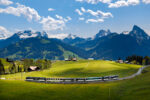Menu
Covid
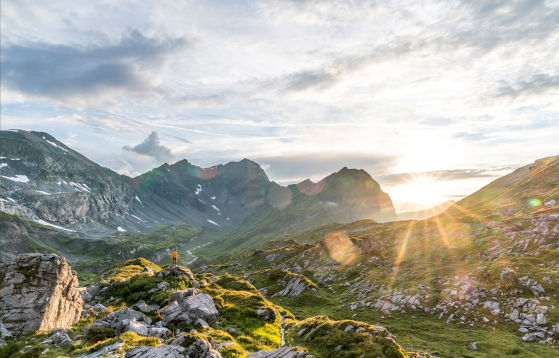
Cause we care.
The sustainable tourism initiative ‘Cause we care’ allows Swiss tourism businesses and travellers to get actively involved in climate protection. When purchasing a touristic service or product, customers get the opportunity to voluntarily pay a small amount for climate protection and sustainability. These contributions are then invested into carbon offset projects. The Tschuggen Hotel Group is a great example of an accommodation provider that offers this option to all guests.
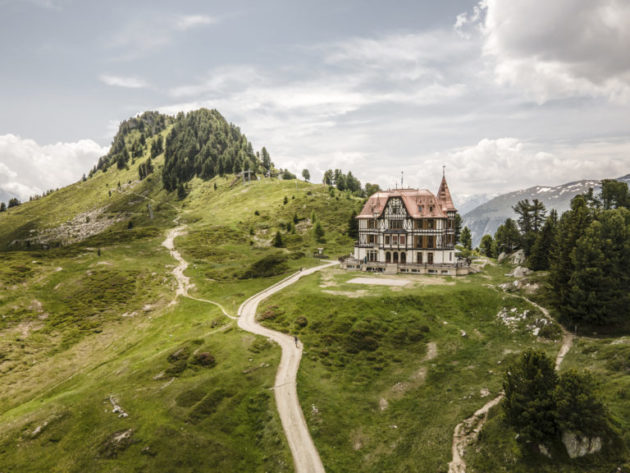
Villa Cassel.
In the early 20th century, the English banker Sir Ernest Cassel chose the Riederalp for his summer retreat and built his residence, the Villa Cassel. After Sir Cassel’s lifetime, it was run as a hotel for decades. For more than 40 years, it has been home to an environmental education and conservation centre, the Pro Natura Center Aletsch. Since its refurbishment in 2019, the centre is operating carbon neutral and is therefore a flagship for sustainable travels.
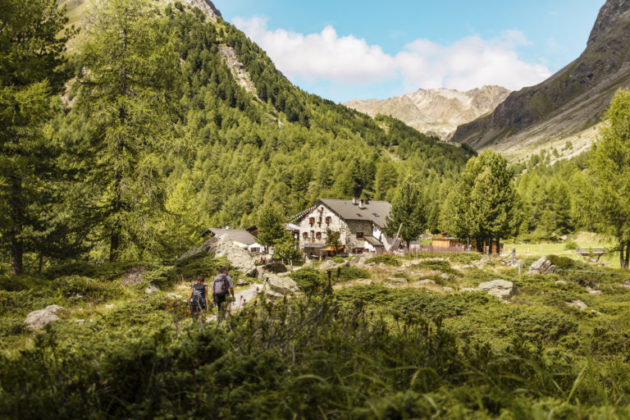
‘Fait su’ in Val Poschiavo.
Presenting the entire production chain transparently, from produce through production to the enjoyment at the table is the approach of one valley in the Bernina region. The project ‘100% Valposchiavo’ was initiated to offer a unique dining experience while enjoying the good things right where they were produced. 12 local restaurants are taking part and declare where their ingredients come from and offer at least three dishes entirely ‘Fait su’ in Valposchiavo, meaning produced right here.
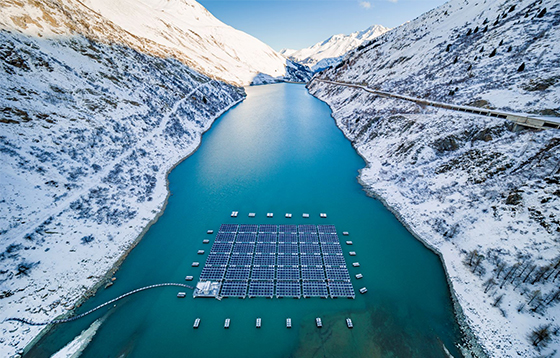
The world’s first high-altitude floating solar power plant.
The solar plant at Lac des Toules, in canton Valais, consists of 1,400 panels, laid on 36 floating structures made of aluminium and polyethylene plastic anchored to the bottom of the lake. The current production exceeds 800,000 kWh per year, which is the equivalent of consumption for about 220 households! Using two-sided panels, which are fitted with photovoltaic cells both front and back, means they can also use light reflected from the surface of the water, which adds to the electrical yield: this plant produces about 50% more electricity than an installation of the same dimensions down in the valley.
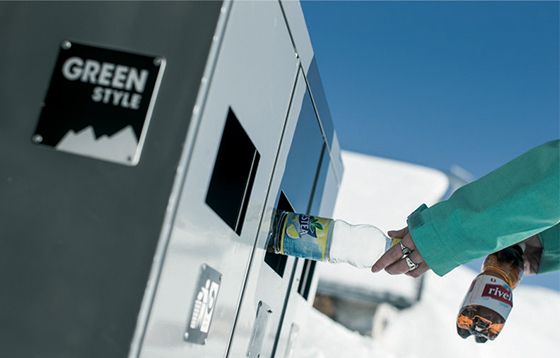
The world’s first self-sufficient alpine destination
This is the goal of Laax, meaning all energy demands of the resort will be provided by local renewable sources. Production of climate friendly hydro energy already exceeds the destination’s electricity needs. The sustainability venture Greenstyle has already implemented over 160 initiatives in the resort. Plans to change all fuel-based consumption to hydro, wind, solar and biomass is underway.
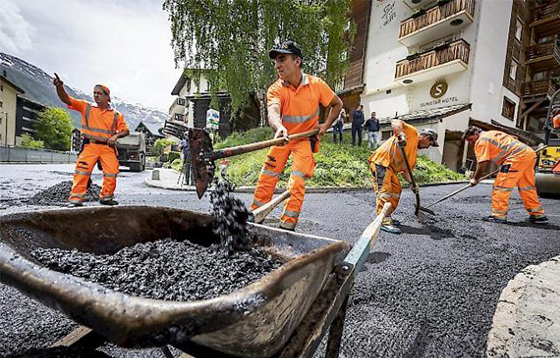
First plastic road in Zermatt.
Plastic pollution is a very current problem. This is why Zermatt took a green approach to the resurfacing of one of their road junctions. It is using technology from award-winning Scottish firm MacRebur, which allows waste plastic that would otherwise have gone to incineration or landfill to be used in the asphalt. The project in Switzerland was led by Kirk Tinham, of Tinham & Co GmbH. The asphalt was produced by Ulrich Imboden AG and laid by Pierre Pistorius of the Zermatt community.

Online Fountain Guide, Lucerne
Thanks to over 200 fountains with drinking water of the highest quality, guests in Lucerne never have to do without, even when on the go. That is why Lucerne Tourism wants to encourage guests to use these fountains as their go-to water source when they are out and about in Lucerne. Of course with an environmentally friendly stainless steel bottle and no PET bottle. Guests can use the free online guide to find their way to the nearest fountain and enjoy some of the best water in the world, free of charge!
